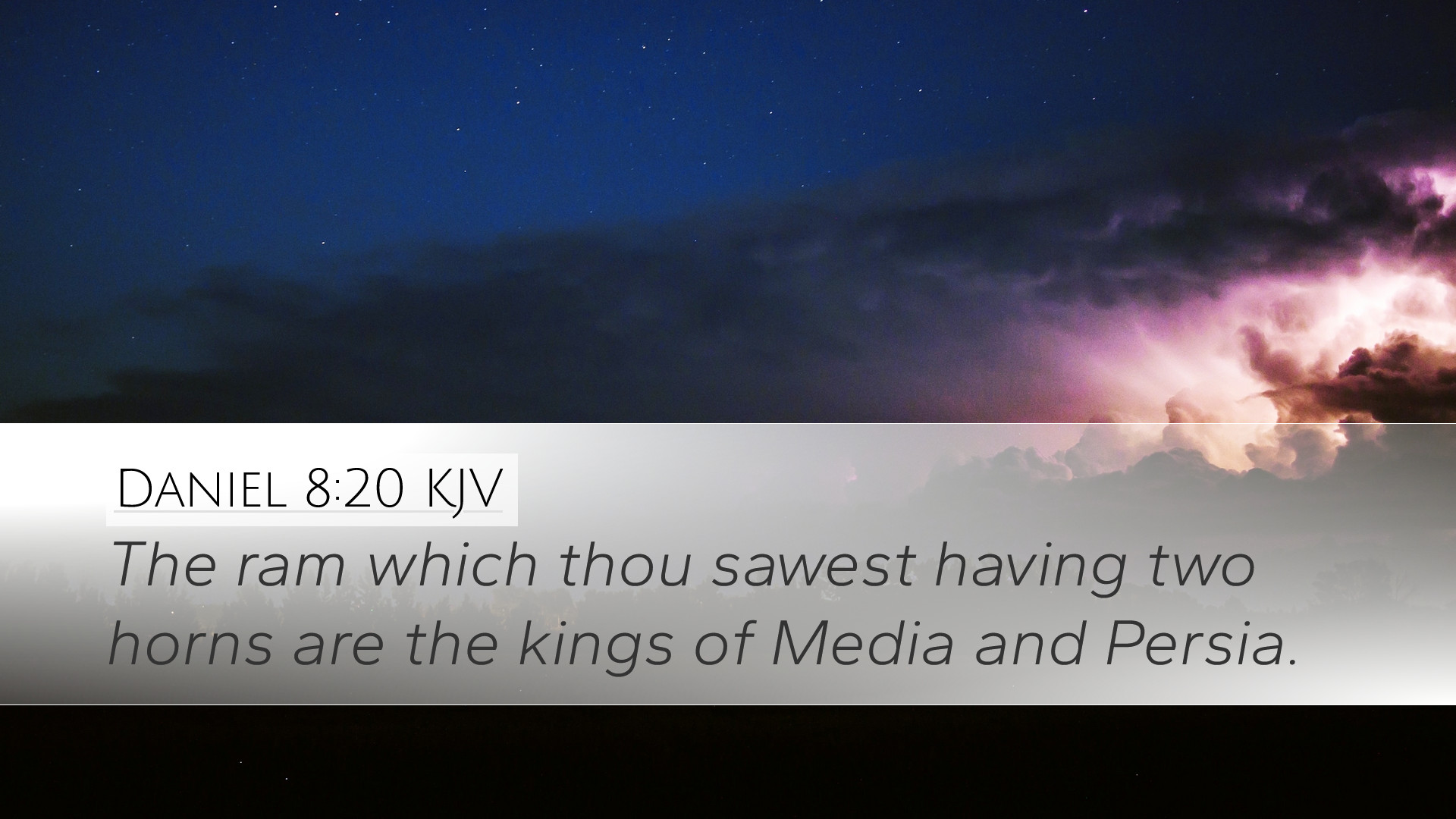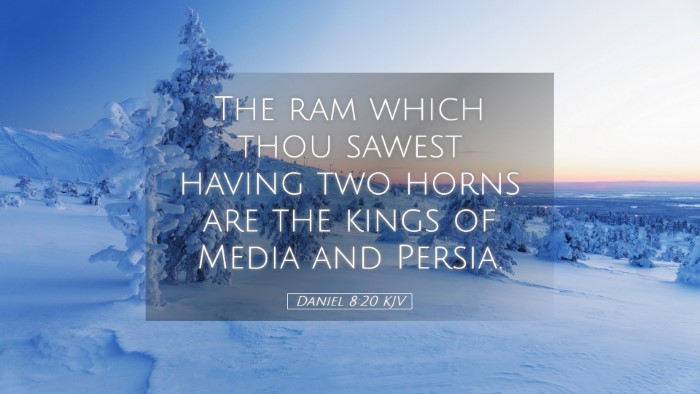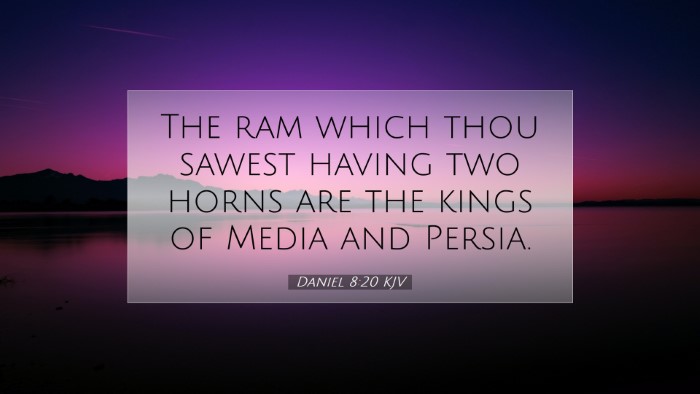Commentary on Daniel 8:20
Daniel 8:20 states: "The ram which thou sawest having two horns are the kings of Media and Persia." This verse is crucial in the prophetic vision of Daniel, providing insight into the geopolitical landscape that ultimately leads to the establishment of God's sovereignty over the earth.
Contextual Analysis
In this passage, Daniel receives a vision that elucidates the rise and fall of empires, particularly focusing on the Media and Persian kingdoms. Understanding the historical context helps in grasping its theological implications.
- Historical Background: During the period of Daniel's life, the Babylonian Empire was dominant; however, the prophecy speaks of an imminent transition as the Medo-Persian Empire was prophesied to rise, signified by the ram.
- Symbolism of the Ram: The ram, with its two prominent horns, represents the kings of Media and Persia. The fact that one horn is higher than the other symbolizes the superiority of the Persian king over the Medo-Persian alliance, as the Persians eventually overshadowed the Medes.
Theological Insights
Several theological themes arise from this verse, particularly regarding God's sovereignty and providence in human affairs.
- Divine Sovereignty: This prophecy illustrates that God governs the rise and fall of nations. The transition from the Babylonian to the Medo-Persian Empire showcases God's overarching control over history.
- Foreshadowing Christ's Kingdom: The kingdoms described ultimately point to God's eternal kingdom. The rise and fall of earthly empires serve as a backdrop to the establishment of God's everlasting rule through Jesus Christ.
Commentary Contributions
Insights from different public domain commentaries provide diverse perspectives on this verse, illuminating its significance for contemporary believers.
Matthew Henry:
Henry emphasizes that the vision of the ram signifies the strong and powerful reign of the Medo-Persian Empire. Through this imagery, he articulates a profound sense of God's justice, noting how the Lord appointed this empire as a tool in His divine plan. Henry also hints at the future conflicts that arise from the ambitions of these kings.
Albert Barnes:
Barnes expands on the metaphor of the ram, discussing its physical characteristics reflecting the strength and tenacity of the kingdoms it represents. He provides commentary on the prophetic narrative, articulating predictions that they would conquer Babylon, thereby validating the prophecy. His focus lays on the relevance of these transitions in the spiritual history of God's people.
Adam Clarke:
Clarke takes a more detailed historical approach, dissecting the identities of the rulers and the implications of their conquests. He emphasizes how the two horns of the ram reflect the dual kingship—that of the Medes and Persians, giving special attention to the Persian Empire's eventual supremacy. Clarke's insights serve to underline the divine orchestration of history in preparation for the coming of Christ.
Application for Today
As pastors, students, theologians, and scholars engage with this verse, there are significant applications to consider:
- Understanding God’s Plan: Grasping the sovereignty of God over nations encourages believers to trust in divine providence, especially amid turbulent times when worldly powers shift.
- Encouragement for Believers: Knowing that God raises and deposes rulers provides comfort and confidence to believers that ultimately, God's kingdom will prevail.
- Mission and Evangelism: Reflecting on the rise and fall of empires can inspire a commitment to evangelism, seeing the urgency in proclaiming the Gospel in light of God’s redemptive history.
Conclusion
Daniel 8:20 serves not merely as a historical statement but as a profound theological declaration about God's control over human history. By examining the insights of noted commentators, we can appreciate the depth of this prophecy and its relevance for today’s believers.


